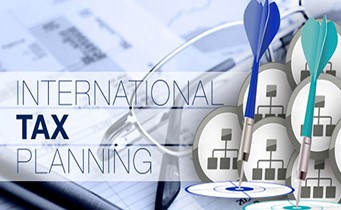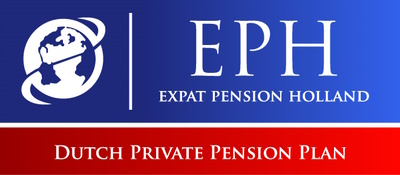A] Why?
Expats often do not have an active Occupational Pension Plan or do not yet use all the pension related tax benefits.
For them it can be very interesting to get a Dutch Private Pension Plan.
Especially as State Pension Claims can be expected to decrease in real value in the future.
B] Dutch Private Pension Plan Also For Americans
Due to the far reaching U.S. Fatca legislation, most financial institutions in The Netherlands do not accept U.S. Persons as client as it would create too much compliance issues. Which makes it impossible for U.S. Persons to escape the low interest rate and invest in a normal manner in The Netherlands.
But a Dutch Private Pension Plan (DPPP) with the wide range of investment options is still possible for them. The longer your investment horizon until retirement age, the more interesting such an investment will be due to the substantial effect of compounded return on investment. Plus of course the substantial tax benefits...
Due to Fatca U.S. Persons in The Netherlands often have to file their tax return also with the IRS. Regarding the DPPP this creates the question if there is the obligation to file and if taxation can be expected. Which are two separate aspects.
If there is the obligation to include the DPPP in your U.S. tax filing can depend on your specific situation. Check with your U.S. tax advisor.
Regarding U.S. taxation of a DPPP in the build-up phase and thus way before the pay-out as of retirement age, we have never seen that any foreign tax authority taxed anybody before retirement age. Neither regarding the amount of capital in the plan nor about the annual capital increase. (Which is not a guarantee that this will never happen.)
Sometimes we get the question: How about the PFIC ‘Passive Foreign Investment Company’? A PFIC is a non-U.S. corporation where at least 75% of its gross income is passive income or at least 50% of the corporation's assets produce or are held to produce passive income. Formal retirement plans like an IRA/DPPP logically seem to have a different regime than the PFIC. (Which is not a guarantee. Check with your U.S. tax advisor.)
Sometimes we get the question: How about IRS Form 3520 and a possible filing obligation? The IRS published a list of exemptions. If the plan is intended for retirement, tax-free in the hosting country, contributions are limited and it’s funded by employment related income, there is in general no filing obligation. (Which is not a guarantee. Check with your U.S. tax advisor.)
C] Tax Benefits
Each Dutch tax resident is entitled to annually invest maximum € 35.798,- in a Dutch Private Pension Plan which premium is income tax deductible. (This is called 'Jaarruimte'.)
The exact annual personal amount is related to the amount of gross wages in the previous year, if there was already an Occupational Pension Claim and if there was the benefit of the Dutch 30% tax ruling.
To the extent that these benefits have not been completely used during the last 10 years, an extra annual tax deductible premium of maximum € 42.108,- can be deposited into the plan. (This is called 'Reserveringsruimte'.) Thus the total annual tax max deductible premium amount is € 77.906,-.
Besides the mentioned Dutch income tax deduction benefit, another tax benefit is that the capital within a Dutch Private Pension Plan is exempted from Dutch box 3 wealth taxation. As this tax exposure is increasing in time, that makes the exemption a fine additional benefit. All the more as the capital into the plan tends to increase due to annual premium deposits.

D] Total Premium Flexibility
The essence of the plan is to use the full tax benefits. Which amount can differ each year. Therefore it is advisable to get the plan which requires only only premium deposit at the start and has the flexibility for you to each year in the future decide if you would like to make another deposit without being obligated to do so.
E] Investments
The investments are the engine of the plan. Therefore it is relevant that the chosen investment funds are excellent, according to your Personal Risk Profile and checked every few years. The Personal Risk Profile we carefully establish using our own 5 page form.
The plans we offer are well known to us and have excellent investment funds at low costs.
F) Tax & Additional Investments
If you might prefer to invest more capital into the plan than the annual maximum tax deductible amount, that is also no problem.
At retirement age you then request from the tax authority a declaration in which they confirm that the amount of capital related to these premiums is not taxed during the pay-out. Which is called the Balance Method.
G] Next of Kin Coverage
In case you might pass away before retirement age, your next of kin will be the beneficiary of the existing pension capital. Thus there will be no capital loss.
If you might have a young family this basic coverage can be improved by getting additional guaranteed coverage. For example by insuring a one-time Lump Sum capital of € 300.000,- / € 500.000,- for a period of 5/10 years. Very effective and often not expensive.
H] Costs
Due to the fierce competition between pension providers, the costs of Dutch Private Pension Plans are very low. As they should be as they are i.e. a tax facilitated investment account.
I] Shop At Retirement Age
At retirement age you have the right to contact a number of insurance companies and request their quotes in order to select the best and highest pay-out offer.
Always use this option as the differences can be substantial!
J] Pay-Out
The total of deposited premiums plus the total return on investment will be used to provide a pay-out as of retirement age during at least 5 years.
100% Lump Sum or Flexi Draw Down like in the U.S / UK / Australia are not allowed. The max allowed one-time Lump Sum is 10% of the final capital at retirement age. (Make sure it does not lead to a higher tax rate exposure.)
K] International Aspects
Wherever you live, it is no problem to get the pay-out from The Netherlands as of retirement age.
If you live in another country, that country will probably tax your global income. Then you request a Dutch tax exemption in order to prevent double taxation.

L] Portal
Each Dutch Private Pension Plan provides a fine portal so you have 24/7 insight into all parameters and investment funds.
M] Fixed Fee & Services
We will gladly assist you in getting the best Dutch Private Pension Plan for a one time fixed fee of € 720,- and no VAT.
This includes the following services:
- Carefully establishing your Personal Risk Profile;
- Selection and comparison of quotes;
- Making all the required tax calculations for maximum tax benefits;
- Providing a quality English Pension Memorandum of 6 pages which will include all facts, your wishes, all options and our recommendations;
- Complete implementation;
- Aftercare is included and gladly offered.
N] Independent Company
We highly value that our company is totally independent and has no ties with any financial institution.
According to Dutch law we only receive fees from clients and not from any financial institution.



